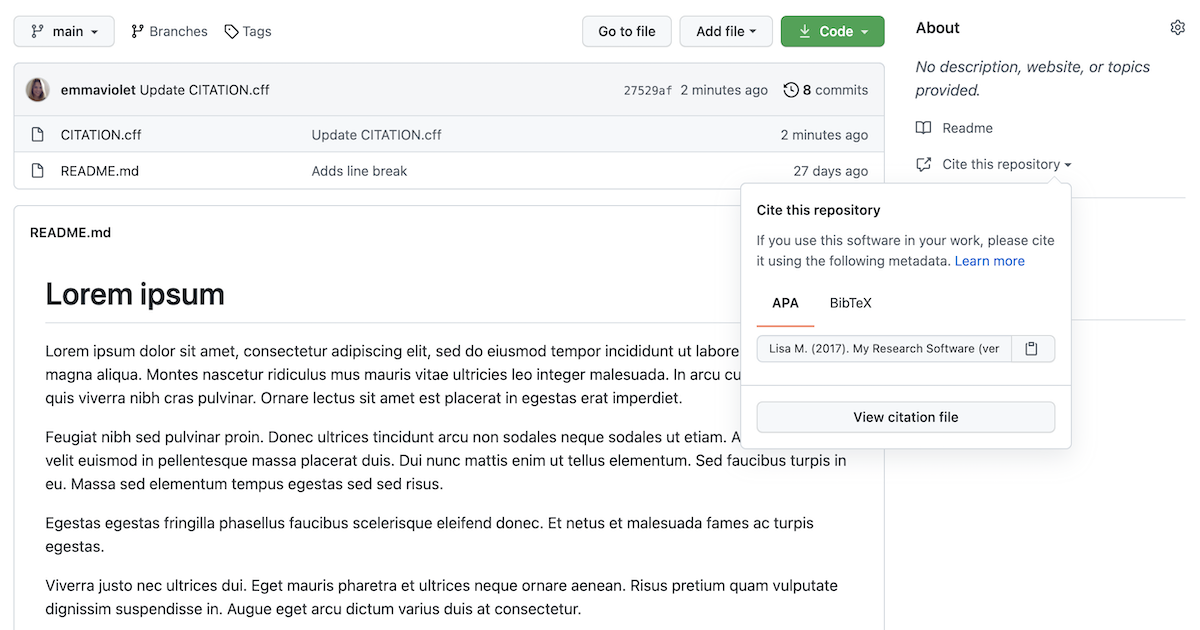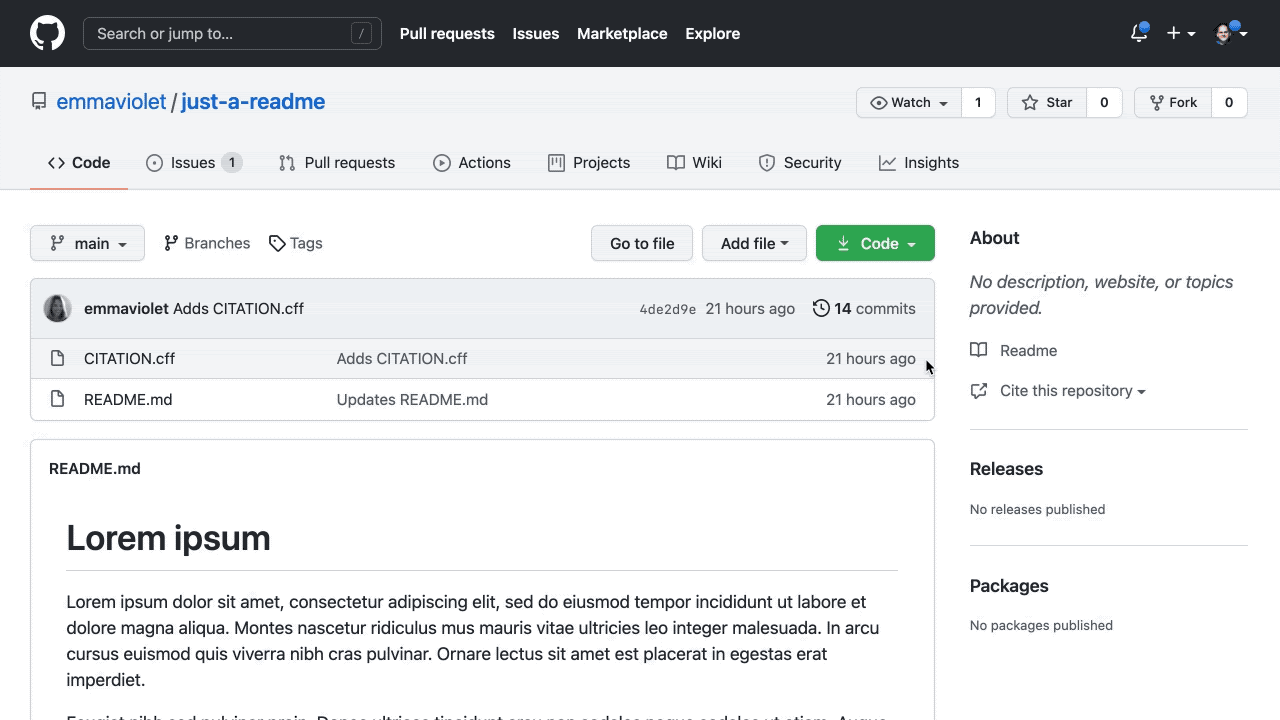Enhanced support for citations on GitHub
We’re excited to support researchers and academics on GitHub with enhanced citation support through `CITATION.cff` files.

Making it easier for others to cite your work
GitHub now has built-in support for CITATION.cff files. This new feature enables academics and researchers to let people know how to correctly cite their work, especially in academic publications/materials. Originally proposed by the research software engineering community, CITATION.cff files are plain text files with human- and machine-readable citation information. When we detect a CITATION.cff file in a repository, we use this information to create convenient APA or BibTeX style citation links that can be referenced by others.
Why we think this matters
From real time dashboards tracking the global impact of COVID-19 to the software used to take the first ever image of a black hole, academics and researchers are responsible for some of the highest-impact work GitHub has the privilege of hosting.
Unfortunately, many researchers who devote significant time and effort producing high-quality open source software often find it hard to receive recognition for their work and suffer a career penalty within academia as a result. Yet the peer reviewed nature of open source makes it an ideal way to share research by providing example implementations, tests and datasets. The ability of researchers to be acknowledged for their open source contributions depends upon the ability of others to easily cite their work when they make use of it. We want to make these experiences easier for researchers and developers alike.
How this works
Under the hood, we’re using the ruby-cff RubyGem to parse the contents of the CITATION.cff file and build a citation string that is then shown in GitHub when someone browses a repository with one of those files1.

We’d love your feedback and help!
Software citation in academia is still relatively new and, as such, we’re expecting that some modifications and enhancements will be required as we mature this feature with the help and feedback of the research community. We’ve been testing the feature with the CFF (Citation File Format) creators2 and a small number of beta testers. Join us in the ruby-cff repository to discuss updates and improvements or check out the docs to get started adding a CITATION.cff file to your repository today.
1 Note we also detect citation files used by some communities (e.g., inst/CITATION for R packages) and link to them if we find one.
2 Stephan Druskat, German Aerospace Center (DLR), Berlin, Germany; Jurriaan Spaaks, Netherlands eScience Center, Amsterdam, Netherlands, https://orcid.org/0000-0002-7064-4069; Robert Haines, University of Manchester, Manchester, UK
Written by
Related posts

GitHub availability report: January 2026
In January, we experienced two incidents that resulted in degraded performance across GitHub services.

Pick your agent: Use Claude and Codex on Agent HQ
Claude by Anthropic and OpenAI Codex are now available in public preview on GitHub and VS Code with a Copilot Pro+ or Copilot Enterprise subscription. Here’s what you need to know and how to get started today.

What the fastest-growing tools reveal about how software is being built
What languages are growing fastest, and why? What about the projects that people are interested in the most? Where are new developers cutting their teeth? Let’s take a look at Octoverse data to find out.